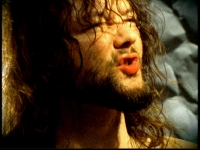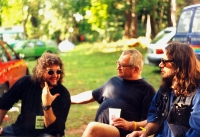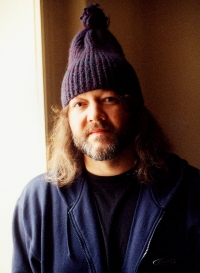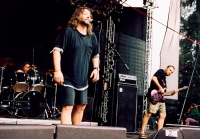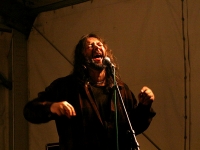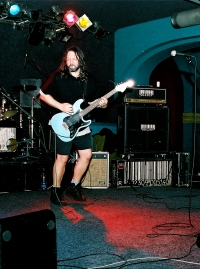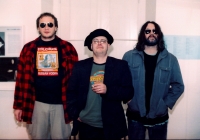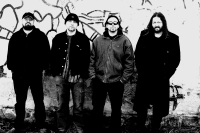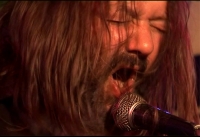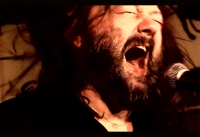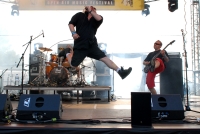If the cops took me out and threw me in the Vltava, no one would know.
Petr Hrabalik was born on 17 January 1962 in Havlíčkův Brod. He graduated from primary school in his hometown and later from high school. In Hradec Králové he then trained as an X-ray technician. In the following years he went on to the uranium mines near Křižany in the Liberec region - and it was here that Petr Hrabalik’s musical folk portfolio was established. His name is associated with the underground concerts he organized in the Havlickuv Brod region at Baracek, called Pod tou strážní věží. In 1988, the band Našrot was formed and in the same year, just a few months later, Petr Hrabalik, together with Pavel Šimon, Petr Novotný and others, founded Havlíčkův Youth. In the 1990s, he participated in the creation of the Czech Television documentary series Bigbít, and was also at the birth of the Prague Popmuseum, which is based in Břevnov. He has written several books.
























































